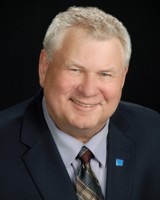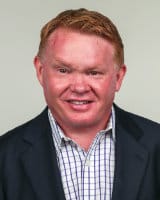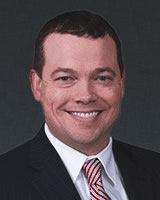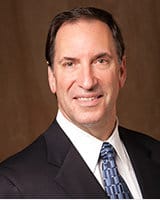
Sure, you’ve convinced me that owning my own practice would be great, but you just don’t understand that it just isn’t practical or even possible for me now. It would take a whole article just to explain that to you. Okay, if you insist.
First of all, I’ve got a huge student loan debt and no bank will lend me the money to buy a practice.
Our team has helped many new graduates with student debt to borrow the money it takes to buy a practice. Many times it involves a Small Business Administration guaranteed loan, but there are lenders who are willing and able to lend money for a practice purchase, notwithstanding educational debt.
Okay, but practices cost too much and I could never afford the payments. You’ve shown me a practice where the monthly payments are over $7,500 each month – that’s over $91,000 per year. There’s no way I could afford that.
I wouldn’t expect you to make those pay-ments. In this practice, the hygienists produce $224,000 per year and you pay them $93,000 per year, leaving an annual hygiene profit of $131,000 per year. So let your hygienists pay them for you by that using some of that $131,000 hygiene profit to pay that $91,000 annual practice payment.
Alright, but the seller also wants me to buy his building for $266,000. There’s no way in the world I could afford to do that, so let’s just forget it.
If you pay $266,000 for the building, you will get a loan for that amount with typically a 15 to 30 year term. Using 15 years, the shortest payback, your monthly payments would be $2,175 per month. Compare that to the $3,100 per month rent payment you would have to pay if you didn’t buy it. And let’s bring the hygienists back in to help with this mortgage payment. They handed you a profit of $131,000 per year, and you used $91,000 of that to pay the practice loan. That leaves $40,000 of hygiene profit still left over which covers the $26,000 per year building payments. That still leaves you $14,000 that you can put toward your retirement savings or other purposes.
So you’re telling me that my hygienists would pay for this practice and building too? How is that possible?
I’m saying that in the case of this actual practice that the hygiene profit alone pays for the practice and building payments. Does this happen in every practice? Obviously not, but with expert guidance you can find practices have strong financial “bones” that will perform profitably for you.
Okay, so getting a loan and making the pay-ments to buy a practice is not impossible. But a friend of mine took a job at a clinic and while he made a big salary, he had to pay over a third of it in income tax. What’s to protect me from taxes eating up what money I make?
Transitioning from dental student to an in-come-earning dentist is a taxable rude awak-ening. Associates pay the maximum income tax because they have little or no ability to shelter income from taxes, while practice pur-chasers are able to depreciate the entire price of their practice. Depreciation lowers your taxable income, but it doesn’t take a penny from your pocket. In the case of this practice, you will be able to deduct $596,000 from your taxable income over the next fifteen years, saving you around $240,000 in taxes. Bottom line, you’ll be paying $240,000 whether you buy this practice or not. If you’re an associate, you’ll give it to Uncle Sam and get nothing in return, or if you’re a purchaser, you’ll give it to the practice seller and get a $240,000 practice discount. In this practice, you will have actual tax savings of $40,000 in the first year alone.
Everything we do is a risk. There is also risk by doing nothing.
Okay, so the hygienist will be making the practice and building payments and Uncle Sam will pay 40% of the practice price for me too, but you still don’t understand, I don’t want all the long hours and hard work of owning a practice.
Most practice owners that I know work 32 hours per week or less– Monday through Thursday. Associates working for DSOs work an average of 45 hours per week1. So if you don’t want to work that hard, work for yourself and spend a day and a half less at the office. And since the average practice owner makes 50% of what they personally produce - double what clinic jobs typically pay - owning your practice and making the same money for half the work might just be attractive to you.
1https://forums.studentdoctor.net/threads/corporate-dentistry.921815/
Well surely you can understand why I need security, given my student loan, and don’t for-get, I have a family to support. How secure am I as an owner?
If you want security, don’t depend on anoth-er person or corporation to get it. Your best security comes from depending on yourself, owning your own practice, and working for yourself. Associates have the least security of anyone – they can be fired. Financial success is not a given, but is a result of careful and well-advised examination of practice options. So if you need job security and the highest percent net income compensation and the op-portunity for substantial tax savings, practice ownership is the only place to find it.
I don’t think you’re getting it – I want the lowest risk option possible.
Everything we do is a risk. There is also risk by doing nothing. The risk of spending a career as an associate has a very high lost opportuni-ty cost. But let’s look at the statistics of failure among practice purchasers. A number of lenders who primarily lend for dental practice acquisitions consistently report that their default rate for dental practice purchasers is less than a half of one percent! I would suggest that dentists who fail in a practice purchase would have failed in whatever career direc-tion they took. If we carve out the Four D’s – Drugs, Divorce, Depression, aDDiction – the failure rate for purchasers would be next to nothing. The risk of working for someone at half the percentage net for their entire career is an unacceptable risk in my opinion.
Okay, okay, but I have no idea of how to run a dental practice.
We are fortunate that dentistry is such a good profession that even we dentists can succeed in it. I do agree that a scratch start practice is quite challenging since it requires creating every man-agement and administrative system needed, as well as the daunting task of hiring and training a staff. Contrast that with buying a practice where the purchaser acquires a fully functioning oper-ation with all systems in place and a trained and experienced workforce to handle the day to day operations. And keep in mind that the seller is a tremendous resource and mentor after the sale when needed. When I bought my practice, I was very fortunate to have a staff that knew much more than I did about how to run the practice, so my primary role was doing dentistry. My not knowing how to run a practice did not slow me from doubling my practice gross in the first year.
I’m just not ready to make a long term commitment such as owning a practice.
News Flash! You have already made a long term commitment by graduating from dental school! Like it or not, you’re going to be practicing dentistry for the next thirty years or so. Like it or not, you are committed. Now you simply need to figure out how to make the most of that commitment so that you can reach financial security and be in a position to retire and enjoy your life, versus working into old age because there wasn’t money for retirement. Remember that when a practice owner retires, they sell their practices and put another sizable contribution in their retirement account, something associates cannot do.
You keep bringing up this idea of profit. What’s so special about that? I understand profit - it’s the money that I’m able to take home - so what’s the big deal?
Profit is a concept that very few dentists under-stand. To best explain Profit, let’s take look at Kar-en, works for FedEx and makes an annual salary of $125,000. Karen also inherited 5,000 shares of FedEx stock. FedEx expects to pay a $2 dividend per share this year which will give her a dividend of $10,000, her share of FedEx’s profit. She did not work for this dividend, but received it because she is an owner (shareholder). This year Karen will have two income sources - a salary she worked for and a separate profit that she received simply because she is an owner. Just keep in mind that profits are not earned, but are solely a benefit of ownership.
In looking at this actual practice, your salary of $202,040 is calculated as 35% of your projected $577,258 production. That is the salary you re-ceive for the work you did. You will also receive practice profit of $238,818, which you did not work for, but received solely because you are the owner. This profit is a 40% return on your practice investment, which was borrowed at that. Karen’s FedEx investment by comparison yielded a divi-dend, or profit, of $10,000, which is a 0.84% yield2. Now you know why corporations want to own your profession.
Consider that this unearned profit of $238,818 can easily cover the annual practice and building payments of $112,000, still leaving $126,818 in profits. Combined with the $202,040 salary, that gives a total net income of $328,858 after all expenses and loan payments have been paid. That is the equivalent of working as an associate at a 57% commission. And there’s more - in ten years the practice loan will be paid off, giving a $91,000 per year pay raise.
2http://www.nasdaq.com/symbol/fdx
Okay, so why are you telling me all of this?
I want you to make the best informed career decisions in your own best interest. Compare this practice purchase opportunity to other offers that you encounter. For instance, many DSOs will pay a 25% commission (contrasted with the 35% I impute for practice owners) and they keep all of the profit since they are the sole owners. If you were doing the same amount of work for a DSO clinic, you would get a salary of $144,315 with a big tax bite taken out of that.
Associates do not get tax savings of $40,000 the first year, there would be no equity in-crease of $69,000, there would be no $57,725 higher salary, and there would be no profit of $239,000.
http://www.nasdaq.com/symbol/fdx
Employee are also subject to being supervised in their clinical activities. This $405,725 lower financial benefit also comes at a 40% longer work schedule.
Thank you for giving me this interview and having an open mind, and I wish you the best of success in your dental career.

 Add me to your address book
Add me to your address book



